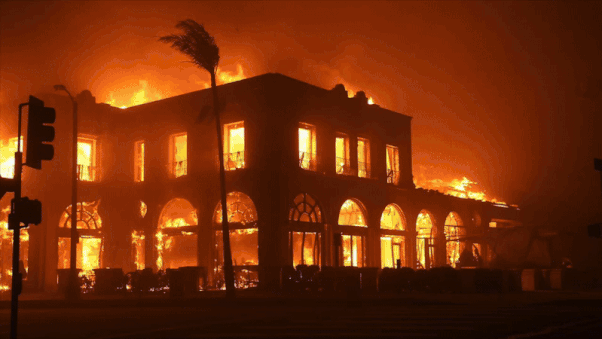Why Labour MPs shouldn’t call themselves socialists
Labour is not, and has never been, a socialist party. It is a social democratic party whose mission is to save capitalism from itself, not replace it with a new system, says John McTernan Is Keir Starmer a socialist? Is Rachel Reeves a social democrat? At the start of the general election campaign, Labour’s leader [...]


Labour is not, and has never been, a socialist party. It is a social democratic party whose mission is to save capitalism from itself, not replace it with a new system, says John McTernan
Is Keir Starmer a socialist? Is Rachel Reeves a social democrat? At the start of the general election campaign, Labour’s leader and his shadow chancellor gave differing answers to questions from journalists about their political beliefs. Few voters will have noticed, and most who did will have wondered – “What’s the actual difference? And does it really matter?”
In one way, it is an arcane historical debate within the Labour party. Reformist Labour leaders, from Hugh Gaitskell in the 50s to Tony Blair in the 90s, have sought to amend Labour’s constitutional commitment to “socialism”. Famously, Labour’s Clause 4, committed the party to “the common ownership of the means of production, distribution and exchange”.
The high tide of that politics was Clement Attlee’s 1945 Labour government which nationalised nearly a fifth of the economy, including coal, railways, road transport, the Bank of England, civil aviation, electricity and gas and steel.
As part of New Labour’s modernisation – and acceptance that the privatisations of Margaret Thatcher were irreversible – Blair amended Clause 4, to state that Labour “believes that by the strength of our common endeavour we achieve more than we achieve alone”. Though hedging his bets, the new clause also began “The Labour Party is a democratic socialist party”.
In another way, this is a fundamental question – what kind of party is Labour? This question has become pressing as opinion polls suggest that the UK will shortly have a Labour government. The values and ideology of a party form the “common sense” of a government once it is elected. They are the prism through which its ministers see the world and they are a guide to action.
Tony Blair used to say that every day in opposition you get up thinking about what you will say but every day in government you get out of bed thinking about what you are going to do.
The biggest shock Labour’s shadow cabinet will feel if, and when, they enter government is the sheer scale of the number of decisions they will have to make on a daily basis. Decisions that they will barely discuss with colleagues, let alone with voters, because there are so many of them given the complexities and reach of modern government.
Voters don’t normally openly discuss this side of politics – indeed few are consciously aware of this side of politics. But they do understand that good judgement is a key quality in a politician and that character and values are fundamental to that.
In the end, the question of whether you are a socialist or a social democrat comes down to the familiar chant – “Who are you?” If I know that, I can normally understand what you are going to do.
New Labour’s compromise wording in its new Clause 4, reflected two evasions. First, that the party isn’t, and has never been, a socialist party – it’s a “Labour” party formed by, and of, the union movement. The best and the worst of Labour’s history has been because of that link to organised labour. But it is foundational.
The second, and critically important point is that Labour’s historic role has always been to rescue capitalism from itself, rather than replace it with a new economic model. That’s why we have paid holidays and a welfare state rather than state planning.
And it explains the successes of Labour in government. Attlee rebuilt Britain after the war. Wilson modernised the country socially from university to race equality legislation, equal pay and abortion, divorce and homosexual law reform. Blair restored the public sphere after Thatcherism.
Now, with the climate crisis, Labour once more has to rescue capitalism rather than replace it.
A crisis always provokes a range of responses. The Tories are retreating to denialism. The Greens advocate for degrowth. And that’s why, more than ever, Labour needs to be confident in saying it is a party of social democrats.
This confidence is needed because the world of politics after the general election will be very different. Since the Conservatives’ landslide victory in 2019, Labour has been concerned about losing votes to its right. It has focused on so-called “hero voters” in the Red Wall.
Polls currently show that a Labour government would face a very different challenge. Two-thirds of voters support progressive parties. The largest bloc being Labour voters, followed by Liberal Democrats, Greens and nationalists. A Labour government should be concerned about losing votes to its left not the right.
The best way to protect against that is to “burn up the road” with the speed and momentum of policy being implemented. And to say what you are doing and why: telling is selling.
Why is decarbonising central to our industrial strategy? Because we are social democrats not Greens! We believe in green growth and green jobs because we need to create wealth as well as redistribute it. Ideas matter.
Winning after 5 July – which is when the next election campaign starts – will need the swagger of social democracy.
John McTernan is a political strategist and commentator and former adviser to Tony Blair



